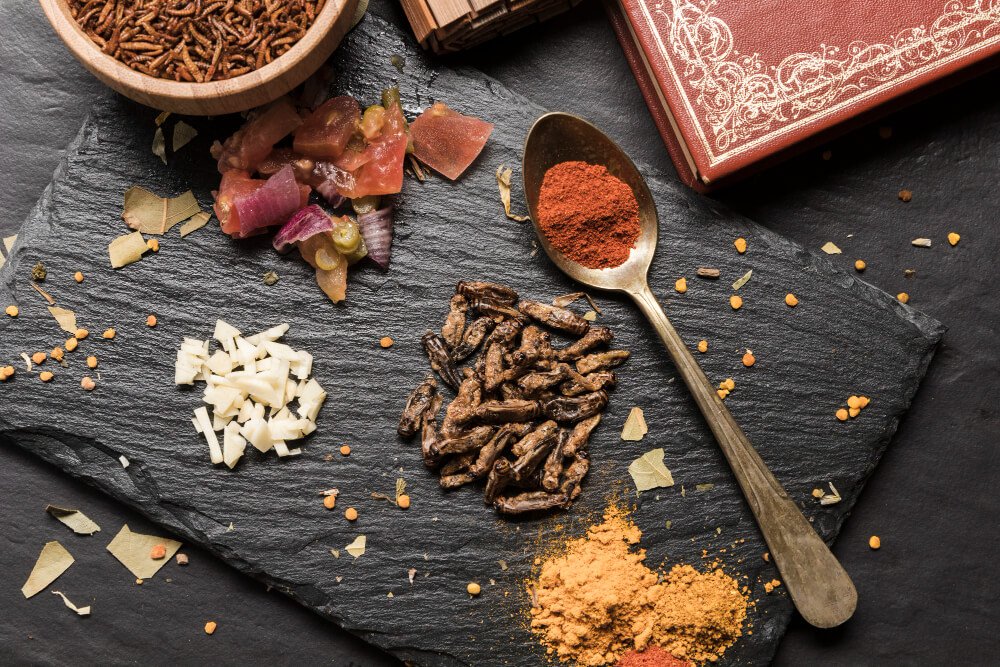The Role of Herbs and Spices in Holistic Health

When it comes to holistic health, herbs and spices are the unsung heroes of the natural world. These tiny powerhouses pack a punch, offering a range of benefits that go beyond just flavoring your food. From boosting your immune system to improving digestion, herbs and spices play a crucial role in maintaining overall well-being. Let’s dive into how these natural wonders can enhance your health in more ways than you might think.
The Power of Herbs and Spices
Nature’s Medicine Cabinet
Herbs and spices have been used for thousands of years in traditional medicine. Ancient civilizations like the Egyptians, Chinese, and Indians recognized their medicinal properties and used them to treat various ailments. Today, science is catching up, and research supports many of the health claims made by our ancestors.
Turmeric, for example, is renowned for its anti-inflammatory properties. Curcumin, the active compound in turmeric, has been shown to reduce inflammation and improve symptoms of conditions like arthritis. Similarly, ginger is well-known for its ability to ease nausea and improve digestion. These natural remedies are not just old wives’ tales; they have real, scientifically-proven benefits.
Boosting Your Immune System
One of the most significant roles that herbs and spices play in holistic health is boosting the immune system. Garlic, for instance, contains allicin, a compound with potent antibacterial and antiviral properties. Adding garlic to your diet can help fend off colds and infections.
Echinacea is another herb that is famous for its immune-boosting properties. Often used in teas and supplements, echinacea can reduce the duration and severity of the common cold. Similarly, elderberry is rich in antioxidants and vitamins that can strengthen your immune response.
Improving Digestion
Good digestion is a cornerstone of holistic health, and herbs and spices can play a pivotal role in maintaining a healthy digestive system. Peppermint, for example, is known for its soothing effect on the stomach and its ability to relieve symptoms of irritable bowel syndrome (IBS). Drinking peppermint tea after meals can aid digestion and reduce bloating.
Fennel is another digestive aid that can help with bloating and gas. Chewing on fennel seeds after meals is a common practice in many cultures to promote better digestion. Cinnamon can also help regulate blood sugar levels and improve insulin sensitivity, which is beneficial for digestive health and overall metabolic function.
Reducing Inflammation
Chronic inflammation is linked to various diseases, including heart disease, cancer, and diabetes. Herbs and spices with anti-inflammatory properties can help combat this. Rosemary, for example, contains compounds that inhibit the production of inflammatory chemicals in the body. Adding rosemary to your meals can help reduce inflammation and promote better health.
Basil is another herb with strong anti-inflammatory effects. It contains eugenol, a compound that can block the activity of an enzyme called cyclooxygenase, which is involved in inflammation. Including basil in your diet can help keep inflammation at bay.
Enhancing Mental Health
Herbs and spices are not just good for your physical health; they can also boost your mental well-being. Lavender is famous for its calming effects and is often used in aromatherapy to reduce stress and anxiety. Drinking lavender tea or using lavender essential oil can help improve your mood and promote relaxation.
Saffron is another spice that has been shown to have mood-boosting properties. Some studies suggest that saffron can be as effective as certain antidepressant medications in treating mild to moderate depression. Adding a pinch of saffron to your meals might just lift your spirits.
Supporting Detoxification
Our bodies are exposed to toxins daily, and herbs and spices can support the body’s natural detoxification processes. Cilantro, for example, is known for its ability to bind to heavy metals and help remove them from the body. Including cilantro in your diet can aid in detoxification.
Milk thistle is another herb that supports liver health and detoxification. Silymarin, the active compound in milk thistle, has been shown to protect the liver from toxins and promote its regeneration. Drinking milk thistle tea or taking it as a supplement can support your liver function.
Promoting Heart Health
Heart disease is a leading cause of death worldwide, and herbs and spices can play a role in promoting heart health. Cayenne pepper, for example, contains capsaicin, which can improve circulation and reduce blood pressure. Adding a bit of cayenne to your meals can give your heart a boost.
Cinnamon is also beneficial for heart health. It can lower cholesterol levels and reduce the risk of heart disease. Incorporating cinnamon into your diet can be a delicious way to protect your heart.
Balancing Hormones
Hormonal balance is crucial for overall health, and certain herbs can help maintain this balance. Ashwagandha is an adaptogen that can help regulate stress hormones and support the endocrine system. Taking ashwagandha supplements or drinking it as tea can help balance your hormones.
Enhancing Skin Health
Herbs and spices can do wonders for your skin, too. Aloe vera, for instance, is renowned for its healing properties, especially for skin issues like burns, acne, and dry skin. Applying aloe vera gel topically can soothe irritation and promote healing.
Turmeric is another fantastic herb for skin health. Its anti-inflammatory and antioxidant properties can help reduce acne and brighten the skin. A turmeric face mask can leave your skin glowing and refreshed. Just mix turmeric powder with a bit of honey and yogurt, apply it to your face, and rinse after 10-15 minutes for a radiant complexion.
Aiding Weight Management
Managing weight can be challenging, but herbs and spices can be a helpful addition to your diet. Green tea, for example, contains catechins, which can boost metabolism and increase fat burning. Drinking green tea regularly can aid in weight loss and improve overall health.
Cayenne pepper also has weight management benefits. The capsaicin in cayenne pepper can increase the body’s metabolic rate, helping you burn more calories. Adding a bit of cayenne pepper to your meals can help control appetite and support weight loss efforts.
Enhancing Brain Function
Certain herbs and spices can support brain health and enhance cognitive function. Ginkgo biloba, for instance, is known for its ability to improve memory and concentration. Taking ginkgo biloba supplements can help boost mental clarity and support brain function.
Sage is another herb that can benefit the brain. It has been shown to improve memory and cognitive performance. Incorporating sage into your diet, whether in cooking or as a tea, can help keep your mind sharp.
Supporting Respiratory Health
Herbs and spices can also support respiratory health. Eucalyptus, for example, is commonly used to relieve symptoms of colds and respiratory infections. Inhaling eucalyptus essential oil can clear congestion and improve breathing.
Thyme is another herb that supports respiratory health. It has antimicrobial properties and can help soothe coughs and sore throats. Drinking thyme tea or using thyme in cooking can benefit your respiratory system.
Balancing Blood Sugar Levels
Managing blood sugar levels is crucial for overall health, especially for those with diabetes or prediabetes. Fenugreek is an herb that has been shown to improve insulin function and lower blood sugar levels. Incorporating fenugreek into your diet can help manage blood sugar levels effectively.
Cinnamon is also beneficial in this regard. It can improve insulin sensitivity and lower blood sugar levels. Adding cinnamon to your diet, whether in your morning coffee or sprinkled on oatmeal, can help maintain stable blood sugar levels.
Supporting Bone Health
Herbs and spices can also support bone health. Nettle, for example, is rich in calcium and other minerals that are essential for strong bones. Drinking nettle tea or using nettle in cooking can support bone density and prevent osteoporosis.
Dandelion is another herb that supports bone health. It is high in calcium and antioxidants, which can protect bone health. Including dandelion greens in your salads or drinking dandelion tea can benefit your bones.
Promoting Healthy Hair
Healthy hair is often a sign of overall well-being, and certain herbs and spices can promote luscious locks. Rosemary is known for its ability to stimulate hair growth and improve scalp health. Massaging rosemary essential oil into your scalp can boost circulation and encourage hair growth.
Amla, also known as Indian gooseberry, is rich in vitamin C and antioxidants, which can strengthen hair and prevent hair loss. Using amla oil or consuming amla supplements can improve hair health.
Reducing Anxiety and Stress
In our fast-paced world, finding ways to reduce anxiety and stress is essential for holistic health. Chamomile is famous for its calming effects. Drinking chamomile tea before bed can promote relaxation and improve sleep quality.
Lemon balm is another herb that can help reduce anxiety and stress. It has a soothing effect on the nervous system and can improve mood. Drinking lemon balm tea or taking it as a supplement can help you feel more relaxed and at ease.
Final Thoughts
Incorporating herbs and spices into your daily routine is a simple yet effective way to enhance your holistic health. Whether you’re looking to boost your immune system, improve digestion, reduce inflammation, or support mental well-being, these natural wonders have something to offer. Start experimenting with different herbs and spices in your cooking, teas, and even skincare routines. You’ll be amazed at how these small additions can make a big difference in your overall health and well-being.
By embracing the power of nature, you can take a holistic approach to your health that is both delicious and effective. So, spice up your life and enjoy the numerous benefits that herbs and spices have to offer!



